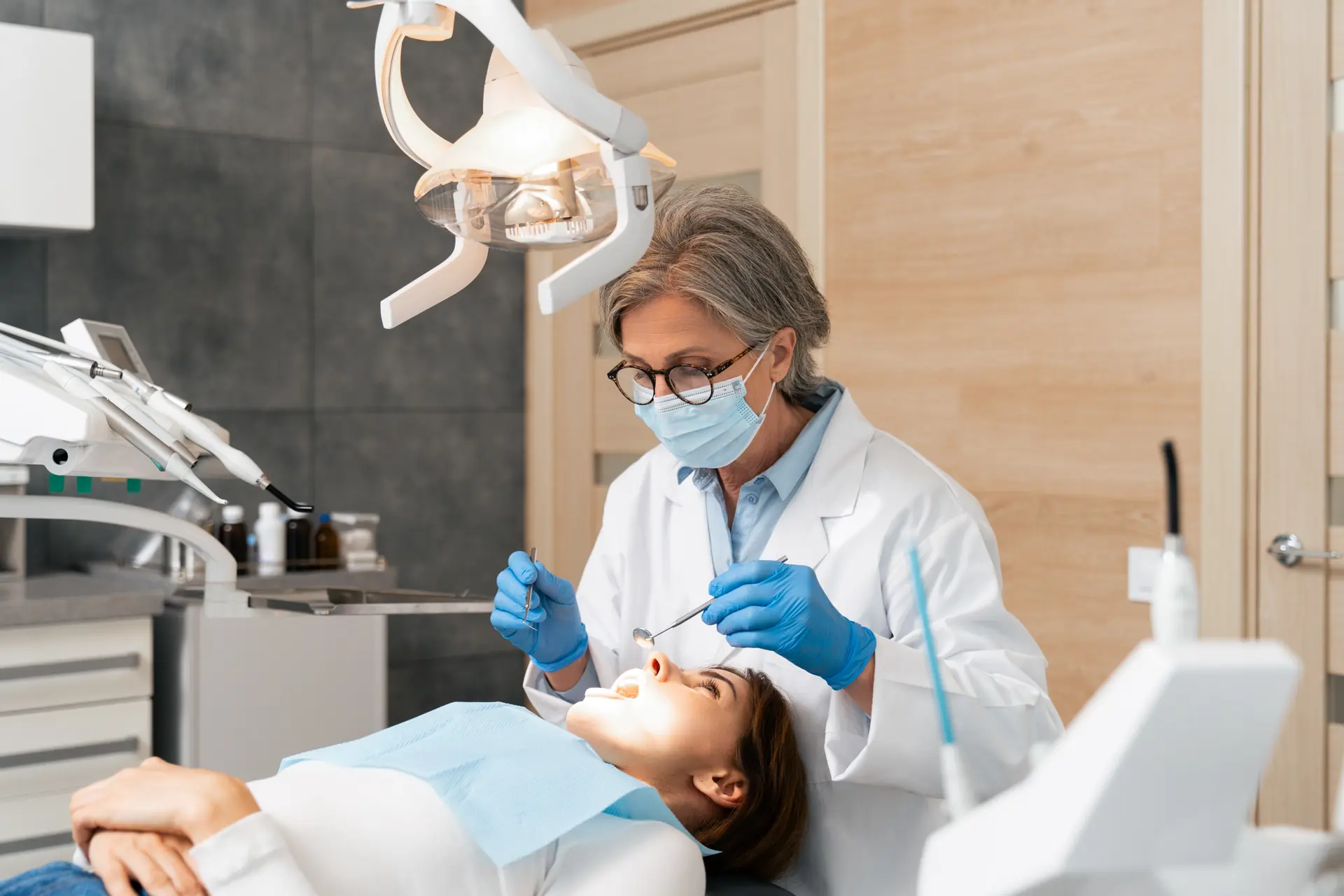It’s easy to justify missing a dental cleaning. Maybe your schedule’s packed, or your teeth feel fine, so rescheduling seems harmless. But here’s the thing—your teeth start reacting the moment you skip that appointment, even if you don’t feel it right away.
Dental cleanings aren’t just about removing surface stains or getting that “fresh mouth” feeling. They’re part of a chain reaction that keeps your oral health, confidence, and even your body in balance. When you skip one, that chain weakens and your mouth starts working overtime to compensate.
Let’s break down what actually happens inside your mouth when that little reminder card from your dentist gets ignored.
How Does Skipping a Dental Cleaning Affect Your Oral Health?
Most people assume the effects of missing a cleaning show up months or even years later. In reality, the impact starts within days.
1. Plaque Never Takes a Break
Plaque is relentless. It’s that invisible film that coats your teeth within hours of brushing. It’s made up of bacteria, food particles, and saliva; and it’s always forming, whether you feel it or not.
During a cleaning, hygienists remove hardened plaque that brushing and flossing can’t reach. When you skip that appointment, you’re giving bacteria extra time to settle, multiply, and attack enamel.
The result?
- Bad breath (bacteria thrive in neglected areas)
- Gum irritation
- Early demineralization, where enamel starts losing strength
2. Gum Health Takes a Hit
Healthy gums are pink, firm, and snug against your teeth. But without regular cleanings, they begin to inflame; sometimes so subtly you won’t even notice.
Your immune system kicks in to fight bacteria under the gumline, leading to swelling and tenderness. This early stage of gum disease is called gingivitis, and while it’s reversible, it’s the first warning sign that things are headed in the wrong direction.
3. You Miss the Early Warnings
Your hygienist isn’t just cleaning—they’re inspecting. They catch signs of small cavities, receding gums, or even early-stage oral cancer.
Skipping a cleaning means skipping an early diagnosis. Many dental issues are painless until they’re advanced, which is why that “everything feels fine” excuse is so risky.
4. Your Whole Body Feels It
It’s not just your mouth at stake. Bacteria from untreated gum inflammation can enter your bloodstream, increasing risks for:
- Heart disease
- Diabetes complications
- Respiratory infections
Your mouth is connected to your body in more ways than one.
What Changes Occur in Your Mouth After Missing a Professional Cleaning?
If you’ve ever wondered what’s really happening inside your mouth when you delay that cleaning, here’s the timeline—broken down in real, human terms.
1. The First Week: The Plaque Party Begins
Within a few days of skipping your cleaning, bacteria start organizing like they’re at a block party. Plaque thickens, especially in hard-to-reach spots: between teeth, behind molars, and along the gumline.
Your saliva can’t fully wash it away, and your toothbrush isn’t designed to scrape it all off. It’s like trying to sweep sand off a carpet—it just embeds deeper.
2. The First Month: Gum Rebellion
By now, your gums might look a little redder than usual. Maybe they bleed when you floss. That’s inflammation—your body’s way of saying, “Hey, something’s not right here.”
You might also start noticing:
- Persistent bad breath
- A sticky feeling after brushing
- A slight dullness in your smile (thanks to enamel film buildup)
This is when gingivitis quietly settles in.
3. Three Months Later: The Tartar Stage
Plaque left unchecked starts to harden into tartar (also called calculus). Once this happens, no amount of brushing or flossing can remove it.
Tartar acts like a fortress for bacteria—it clings tightly to enamel and creeps under the gums. It’s also porous, which means it traps stains more easily. You’ll notice your teeth looking dull or yellow even if you brush regularly.
4. Six Months and Beyond: The Real Damage Begins
At this point, inflammation can turn into periodontitis, the advanced stage of gum disease. The gums begin pulling away from the teeth, creating pockets where bacteria thrive.
Left untreated, it can lead to:
- Gum recession
- Bone loss
- Tooth mobility or even tooth loss
And remember: once bone is lost, it doesn’t grow back naturally. That’s why consistent cleanings are so critical—they prevent issues that can’t easily be reversed.
Can Plaque Buildup Start Immediately After Skipping a Dental Appointment?
In short? Yes—almost immediately.
1. Plaque is a 24/7 Operation
Plaque doesn’t wait until your next cleaning to form. It starts within hours after brushing, fed by leftover sugars and starches in your diet.
By the end of the day, millions of bacteria are already hard at work creating acid that weakens enamel. When you skip your scheduled cleaning, you’re essentially giving those bacteria a head start.
2. Your Oral Microbiome Gets Out of Balance
Your mouth naturally has a balance of good and bad bacteria. Cleanings help reset that balance.
When you skip, harmful bacteria start to dominate. They release toxins that irritate your gums and erode enamel, creating an environment that favors decay over health.
3. Plaque Doesn’t Just Stay on Teeth
Plaque clings to every surface it can find—tongue, cheeks, gums, even fillings and crowns. Over time, this buildup changes the way your mouth feels. That clean, slick post-dentist sensation fades, replaced by a film that brushing alone can’t remove.
4. Your Saliva Works Overtime
Your saliva tries to neutralize acids and wash away debris, but without professional cleanings, it can’t keep up. Especially if you’re dehydrated or taking medications that cause dry mouth, your natural defenses weaken fast.
It’s a microscopic tug-of-war that happens every day, and skipping your cleaning tips the odds in plaque’s favor.
How Long Does It Take For Tartar to Form When You Skip a Cleaning?
You might think tartar takes months to appear, but it can start forming in as little as 24 to 72 hours after plaque buildup begins.
1. The Science of Hardening Plaque
Plaque is soft and sticky at first. But over time, the minerals in your saliva, especially calcium and phosphate—interact with it, hardening it into tartar.
This calcification process begins on rough or textured surfaces first, like the backs of teeth or around the gumline.
Once it’s hardened, no toothbrush can remove it. It’s like trying to scrub concrete with a paper towel.
2. Why Tartar is a Big Deal
Tartar isn’t just cosmetic—it’s a bacterial magnet. It traps toxins against your gum tissue, fueling inflammation and infection.
Even worse, it creates a rough surface where new plaque sticks more easily. That means the longer you go without a cleaning, the faster buildup accelerates.
3. The Vicious Cycle
Skipping one cleaning often makes it easier to skip the next. But here’s what happens when tartar is left untreated for too long:
- The gums recede further
- Pockets deepen
- Bone loss progresses silently
And because tartar buildup is gradual, you might not realize how much damage has been done until your next appointment, when the hygienist has to work twice as hard to clean it.
4. It’s Never Just About the Teeth
Tartar affects your entire mouth’s environment. It can irritate soft tissues, cause persistent bad breath, and even make your teeth more prone to staining and decay.
That “just one missed cleaning” mindset often turns into a chain of long-term consequences that require more time, effort, and cost to fix later.
The Real Lesson: It’s About Consistency, Not Perfection
Skipping a cleaning once won’t destroy your teeth overnight, but it does set a silent process in motion. Every skipped appointment compounds what bacteria and tartar have already started, making it harder for your mouth to bounce back.
The secret to lifelong oral health isn’t complicated: stay consistent. Regular cleanings don’t just protect your teeth—they make every brushing and flossing session at home more effective.
In other words, the easiest dental appointment is the one you don’t put off.
Keep Your Smile on Track — Visit River District Dentistry Smiles
At River District Dentistry Smiles, we believe a healthy smile shouldn’t be stressful to maintain. Our team takes a gentle, thorough approach to cleanings that go beyond surface shine; we remove buildup, restore balance, and keep your mouth in top shape all year long.
Whether it’s been six months or a little longer (hey, life happens), we’re here to help you get back on track without judgment—just great care and a fresh start.
Your teeth don’t take breaks, so your cleanings shouldn’t either. Let’s make your next visit one that keeps your smile glowing for all the right reasons.


